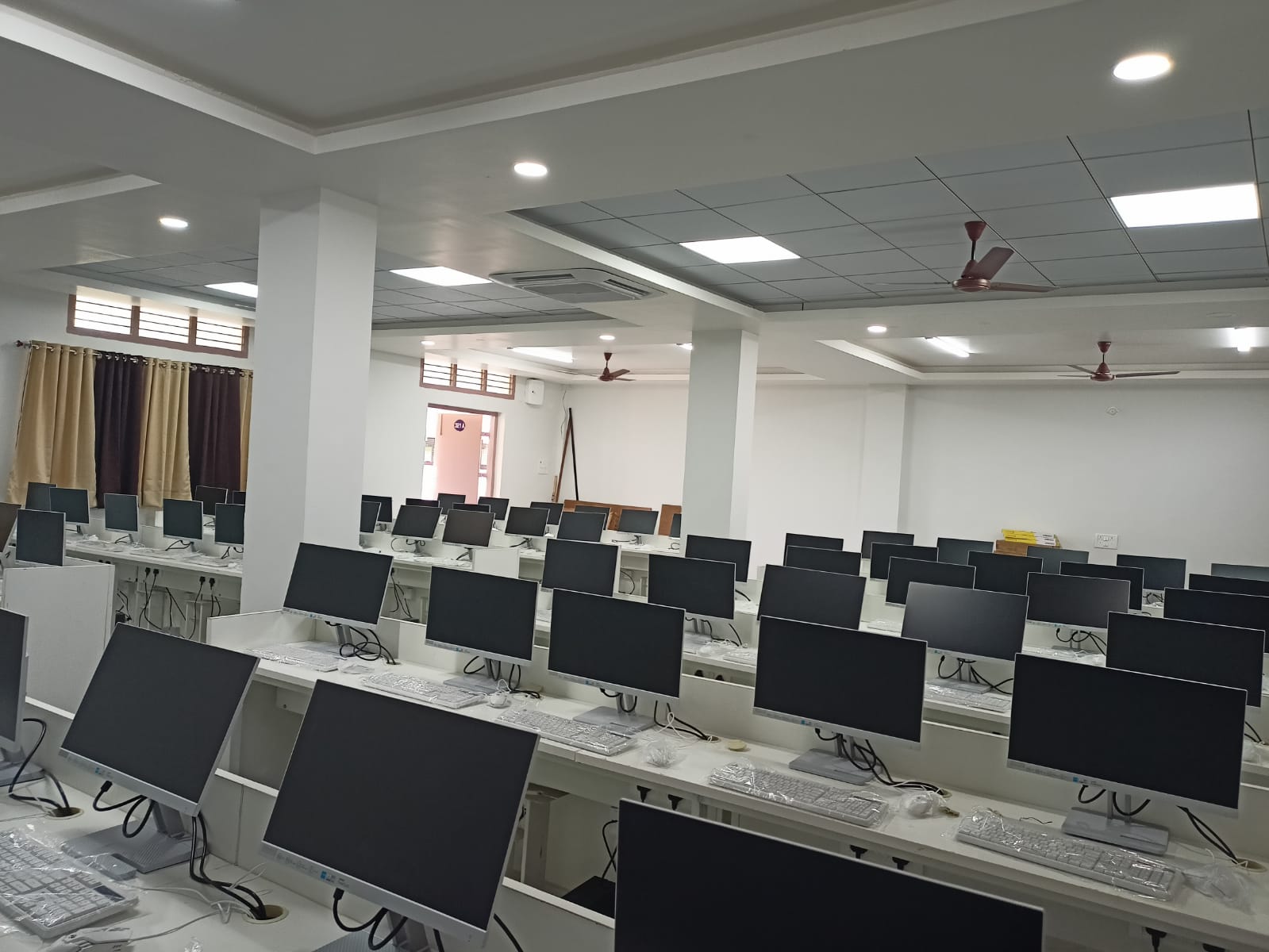
The Department of CSE (AI-ML) was started in the year 2023 with an intake of 60, as an Emerging Branch in the area of Computer Science and Engineering. Later, the intake is increased to 120 in the 2024-25 academic year. A relatively new program in computer science, artificial intelligence (AI) is quickly gaining ground in a wide range of industries, including healthcare, security, entertainment, education, autonomous vehicles, intelligent robots, space exploration, speech recognition, stock trading, and many more. Our lives have changed significantly as a result of AI and its uses. By imitating human intelligence, artificial intelligence (AI) seeks to instill intelligence in robots. An application of artificial intelligence (AI) called machine learning (ML) aims to give machines the capacity for self-learning. The digital revolution is greatly aided by AI and ML, which have also produced a large number of job prospects. Professional engineers with training in these technologies are in high demand. This program offers essential degrees that elevate the status of the student industry.

M.Tech, (Ph.D)
Associate Professor & HOD
To emerge as a center of excellence in Artificial Intelligence and Machine Learning, empowering students to become innovative professionals and ethical leaders who contribute to societal advancement through intelligent technologies.
Having clarity of purpose and a clear picture of what you desire, is probably the single most important factor in achievement. Why is Clarity so important?
Without clarity, you send a very garbled message out to the Universe. We know that the Law of Attraction says that we will attract what we focus on, so if we don’t have clarity, we will attract confusion.
Read More








| S.No. | Room No. | Type | Facilities Available |
|---|
The laboratories are the backbone of engineering course of study, the Laboratory instruction develops students' experimental skills, ability to work in teams and communicate effectively, learn from failure, and be responsible for their own results. We have the following laboratories with full-fledged faculties.
The AIML Lab is dedicated to fostering advanced research and practical learning in the domains of Artificial Intelligence and Machine Learning. The lab is equipped with high-performance computing resources, AI development frameworks, and datasets to support projects in deep learning, natural language processing, computer vision, and data analytics. Students engage in hands-on implementation of algorithms, model training, and participate in interdisciplinary AI-driven projects.
R23
| S.No. | Month & Year | Author(s) | Journal Name | Title | Indexing | Impact Factor | ISSN / ISBN No. | Volume / Issue / Page No. | DOI |
|---|---|---|---|---|---|---|---|---|---|
| 1 | Jun-2025 | Mr.J.David Sukeerthi Kumar | JOURNAL | Dual CH Selection and Routing for Network Lifetime Maximization in Wireless Sensor Network Using Red Billed Blue Magpie Optimization Algorithm | Scopus | 1.93 | 2185-3118 | Vol.18, No.5, 2025,771 | DOI |
| 2 | Sep-2024 | Mr.J.David Sukeerthi Kumar | JOURNAL | Hybrid Sand Cat Swarm Optimization Algorithm-based Reliable Coverage Optimization Strategy For Heterogeneous Wireless Sensor Networks | Scopus | 3.2 | 2511-2112 | 235 | DOI |
| S.No. | Date / Month & Year | Name of the Innovation | Title | National / International | Patent No. | Published/Graduated |
|---|---|---|---|---|---|---|
| 1 | Aug-2025 | Mr.J.David Sukeerthi Kumar | A Machine Learning-Based Predictive Maintenance System for Industrial Equipment Health Monitoring | National | 202541075033 A | Published |
| 2 | Jun-2025 | Mr.J.David Sukeerthi Kumar | AI DRIVEN DEFECT PREDICTION FRAMEWORK WITH INTEGRATED CODE QUALITY AND RUNTIME ANALYSIS | National | 202541049277 A | Published |
| 3 | Jun-2025 | Mr.P.Jacob Vijaya Kumar | STOCK MARKET FORECASTING WITH MACHINE LEARNING | National | 202541049269 A | Published |
| 4 | Jun-2025 | Mr.C.Venkata Swamy | ENHANCING DEEP FAKE DETECTION THROUGH HYBRID MOBILE NET-LSTM MODEL WITH REAL-TIME IMAGE AND VIDEO ANALYSIS | National | 202541049270 A | Published |
| 5 | May-2025 | Mr.J.David Sukeerthi Kumar | AI-POWERED VIBRATION MONITORING SYSTEM FOR ROTATING MACHINERY | National | 447559-001 | Granted |
| S.No. | Name of the PI | Name of the Co-PI | Scheme | Funding Agency | Title of the Project | Amount | Date / Month & Year | Duration | Status | SELECT * FROM `dept_projects` WHERE `dept`='CSM' ORDER BY `monyr` DESC
|---|
| S.No. | Name of the PI | Name of the Co-PI | Govt./Non Govt. | Title of the Project/Consultancy | Amount | Date / Month & Year | Duration | Status |
|---|
